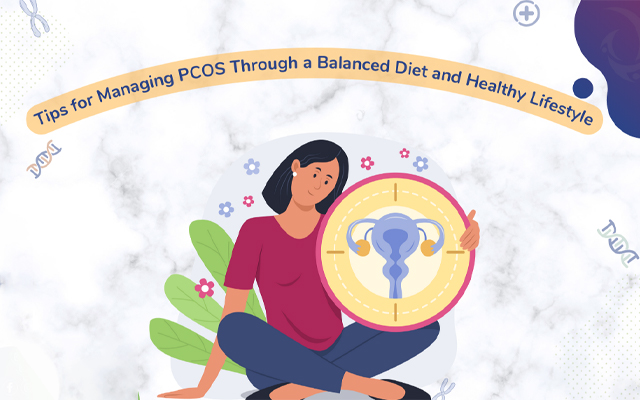Navigating PCOS with Nutrition: A Holistic Approach to Managing Symptoms
Polycystic Ovary Syndrome (PCOS) is a common endocrine disorder that affects millions of women worldwide. Characterized by hormonal imbalances, irregular menstrual cycles, and cystic ovaries, PCOS can present a range of challenges, from infertility to metabolic disturbances. As a nutritionist specializing in women's health, I am passionate about empowering women with evidence-based strategies to manage PCOS symptoms and improve overall well-being. In this blog, we'll explore the role of nutrition in PCOS management and practical tips for optimizing health through diet and lifestyle.
Understanding PCOS: PCOS is a complex condition with a diverse array of symptoms and underlying factors. While the exact cause of PCOS is not fully understood, it is believed to involve a combination of genetic, hormonal, and lifestyle factors. Common symptoms of PCOS include irregular or absent periods, ovarian cysts, acne, excessive hair growth (hirsutism), weight gain, and difficulty conceiving.
The Role of Nutrition: Nutrition plays a crucial role in managing PCOS symptoms and promoting hormonal balance. A well-balanced diet that focuses on whole, nutrient-dense foods can help regulate insulin levels, reduce inflammation, support ovulatory function, and promote overall health. Additionally, maintaining a healthy weight through proper nutrition and lifestyle choices can improve PCOS symptoms and reduce the risk of complications such as type 2 diabetes and cardiovascular disease.
Nutritional Strategies for PCOS Management:
- Balanced Macronutrients: Aim for a balanced intake of carbohydrates, protein, and healthy fats to support stable blood sugar levels and prevent insulin spikes. Choose complex carbohydrates such as whole grains, fruits, and vegetables, and incorporate lean proteins and healthy fats into each meal.
- Fiber-Rich Foods: Include plenty of fiber-rich foods such as vegetables, fruits, legumes, and whole grains in your diet to support digestive health, promote satiety, and regulate blood sugar levels.
- Anti-inflammatory Foods: Incorporate anti-inflammatory foods such as fatty fish, nuts, seeds, olive oil, turmeric, ginger, and leafy greens into your diet to reduce inflammation and support overall health.
- Mindful Eating: Practice mindful eating techniques such as listening to hunger and fullness cues, eating slowly, and savoring each bite to prevent overeating and promote a healthy relationship with food.
- Hydration: Stay hydrated by drinking plenty of water throughout the day to support digestion, metabolism, and overall health. Limit consumption of sugary beverages and opt for water, herbal teas, and infused water instead.
Lifestyle Recommendations: In addition to nutrition, lifestyle factors such as regular physical activity, stress management, adequate sleep, and social support play integral roles in managing PCOS symptoms and improving overall well-being. Incorporate stress-reducing activities such as yoga, meditation, deep breathing exercises, and hobbies into your daily routine to promote relaxation and emotional well-being.
Consultation with a Nutritionist: Every woman's experience of PCOS is unique, and individualized nutrition counseling can provide personalized guidance and support tailored to your specific needs, preferences, and health goals. A qualified nutritionist can work with you to develop a customized nutrition plan to optimize your health and well-being while managing PCOS symptoms effectively.





